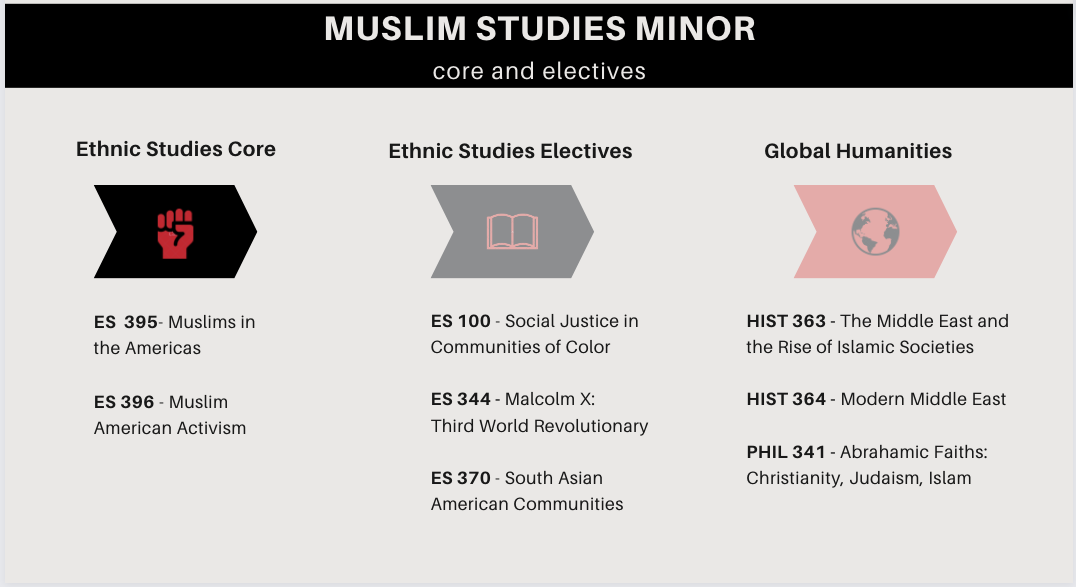
The Muslim Studies minor explores American Muslim experience in the context of Islam as faith, civilization and sociopolitical framework. The minor combines coursework in ethnic studies, history and philosophy for an interdisciplinary, intersectional study of communities and ideas. Core coursework situates the study of Muslims in the Americas, tracing the early movement of people, ideas and practices from West Africa, the Iberian Peninsula and Southwest Asia to the Caribbean, South and North America. Later migrations and conversion to Islam have shifted demographics with the establishment of ethnically diverse Muslim communities throughout the hemisphere. The core addresses Islamophobia and Muslim activism for justice against coloniality, fascism and epistemic racism. Electives provide a foundation in religious thought, history and social movements.
Coursework (15-18 units)

CORE COURSES (6 units)
ES 395: Muslims in the Americas (3)
ES 396: Muslim Activism (3)
ELECTIVES (9-12 units)
ES 100 Introduction to Social Justice in Communities of Color (3)
ES 344 Malcolm X: Third World Revolutionary (3)
ES 370 South Asian American Communities (3)
HIST 363 The Middle East and Rise of Islamic Societies (4)
HIST 364 Modern Middle East (4)
PHIL 341 Abrahamic Faiths: Judaism, Christianity, Islam (3)
Send the completed Minor Check Form to ES@csueastbay.edu.
News